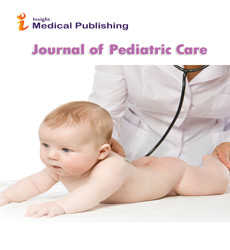Abstract
Appendicitis Ultrasound: Comparison Study of the Radiology Resident to the Technologist and Attending
Background and objects: Community hospitals and academic centers may not always have a radiologist or sonographer on site, and the responsibility of US performance after hours maybe left to a resident. The purpose of this study was to evaluate a growing concern at our institution that a higher numbers of pediatric CT scans were being conducted overnight for the evaluation of acute appendicitis, as a result of a perception that scans performed by residents were not as accurate as those performed by technologists and/or attending.
Materials and methods: 573 patients initially evaluated by ultrasound for appendicitis, from April 2008 to March 2014. Studies were distinguished by either resident or technologist and attending (TA) performing the procedure. The junior resident was in the first to third years of training with at least 8 weeks of US experience. Follow-up computed tomography and operative reports were reviewed to determine if appendicitis was later confirmed.
Results: Of 462 studies in the pediatric non-pregnant group, ages one to eighteen years, 261 (56.5%) were performed by a junior resident and 201 (43.5%) were performed by the TA group. The sensitivity of diagnosing acute appendicitis in the first ultrasound by the resident and TA groups were 59% and 67%, respectively (p=0.73). Additional testing ordered after a negative initial US was higher in the resident group than the TA group, 85 (39.5%) and 46 (26.4%), respectively (p=0.010). The number of false negatives in the overall, resident and TA groups were 35 (38%), 24 (41%) and 11 (33%), respectively (p=0.68).
Conclusion: Although appendicitis US has been traditionally touted as operator dependent, there was no statistical difference in this study between residents and attendings of varying levels of experience. Additionally, more follow up studies were ordered when the initial study was negative and performed by the resident.
Author(s):
Allaei A, Goldfisher R, Neimark M and Amodio J
Abstract | Full-Text | PDF
Share this

Google scholar citation report
Citations : 130
Journal of Pediatric Care received 130 citations as per google scholar report
Abstracted/Indexed in
- Google Scholar
- China National Knowledge Infrastructure (CNKI)
- Cosmos IF
- WorldCat
- Geneva Foundation for Medical Education and Research
- Secret Search Engine Labs
Open Access Journals
- Aquaculture & Veterinary Science
- Chemistry & Chemical Sciences
- Clinical Sciences
- Engineering
- General Science
- Genetics & Molecular Biology
- Health Care & Nursing
- Immunology & Microbiology
- Materials Science
- Mathematics & Physics
- Medical Sciences
- Neurology & Psychiatry
- Oncology & Cancer Science
- Pharmaceutical Sciences

